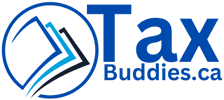Introduction to Personal Tax Advisors
Personal tax advisors are essential guides in navigating the complexities of taxation. They offer expertise and tailored solutions to individuals and businesses, ensuring compliance with tax laws while optimizing financial outcomes. From tax planning to maximizing deductions, these advisors play a pivotal role in securing financial well-being and peace of mind.
The Importance of Personal Tax Advisor in Calgary
Personal tax advisors play a pivotal role in navigating the complexities of taxation for individuals and businesses alike. With their expertise and insights, they help clients minimize tax liabilities while maximizing financial benefits. By staying abreast of ever-changing tax laws and regulations, they ensure compliance and capitalize on available deductions and credits. Personal tax advisors offer personalized solutions tailored to each client’s unique financial situation, providing invaluable support and guidance throughout the tax management process. Their proactive approach and expertise alleviate the burden of tax-related stress, empowering clients to navigate the tax landscape with confidence.
Qualities to Look for in a Personal Tax Advisor
Experience and Expertise: A proficient personal tax advisor should have a wealth of experience and expertise in tax planning, preparation, and compliance.
Communication Skills: Effective communication is crucial. A good tax advisor should be able to explain complex tax concepts in simple terms, fostering clear understanding and trust.
Understanding of Tax Laws: The tax landscape is constantly evolving. A competent tax advisor should stay updated with the latest tax regulations and changes.
Attention to Detail: Tax preparation requires meticulous attention to detail to ensure accuracy and compliance with tax laws.
Client-Centric Approach: A good tax advisor should prioritize the needs and goals of their clients, offering personalized solutions tailored to their specific financial situation.
Ethical Conduct: Integrity and ethical conduct are paramount. A trustworthy tax advisor should adhere to professional standards and act in the best interests of their clients.
Problem-Solving Skills: Tax situations can be complex. A skilled tax advisor should possess strong problem-solving skills to navigate challenges effectively.
Availability and Accessibility: Accessibility and responsiveness are key. A reliable tax advisor should be available to address client inquiries and concerns promptly.
Continuing Education: The tax landscape is dynamic. A committed tax advisor should engage in continuous learning to stay abreast of industry trends and developments.
Client References and Testimonials: Client references and testimonials provide valuable insights into the advisor’s track record and client satisfaction levels.
Benefits of Hiring a Personal Tax Advisor
Tax Planning and Preparation: They strategize to minimize taxes and maximize refunds.
Maximizing Deductions and Credits: Identifying savings opportunities.
Compliance with Regulations: Ensuring accurate filings and avoiding penalties.
Expert Guidance: Tailored advice for your financial situation.
Peace of Mind: Trusting professionals to manage your taxes.
Time and Stress Savings: Freeing you from tax-related tasks.
Audit Assistance: Representing your interests during audits.
Long-Term Financial Planning: Helping plan for future financial goals.
Customized Solutions: Personalized tax strategies.
Maximize Tax Savings: Optimizing your tax position for more income retention.
Finding the Right Personal Tax Advisor in Calgary
Research and Recommendations
Research and recommendations are crucial steps in finding a suitable personal tax advisor in calgary. Research involves exploring multiple sources such as online directories, professional networks, and websites to identify potential advisors. Additionally, seeking recommendations from friends, family, or colleagues who have had positive experiences with tax advisors can provide valuable insights. These recommendations offer firsthand knowledge of an advisor’s reliability, expertise, and professionalism. By combining thorough research with trusted recommendations, individuals can make informed decisions when selecting a personal tax advisor tailored to their specific needs and preferences.
Consultation and Interview
Consultation and Interview” are pivotal phases in the process of selecting a personal tax advisor. During the consultation, individuals schedule meetings with potential advisors to discuss their financial objectives and requirements. This stage serves as an opportunity to gauge the advisor’s expertise, communication style, and understanding of the individual’s financial situation. Subsequently, the interview stage involves asking pertinent questions regarding the advisor’s experience, approach to tax planning, and fee structure. By engaging in thorough consultations and interviews, individuals can make informed decisions about which advisor aligns best with their needs and preferences for effective tax management.
Checking Credentials and Reviews
“Checking Credentials and Reviews” is an essential step in the process of selecting a personal tax advisor. It involves verifying the credentials and qualifications of potential advisors to ensure they possess the necessary expertise and professional certifications, such as Certified Public Accountant (CPA) or Enrolled Agent (EA). Additionally, reviewing client testimonials and online reviews provides valuable insights into the advisor’s reputation, reliability, and track record of client satisfaction. By conducting thorough checks of credentials and reviews, individuals can make informed decisions and choose a trusted advisor for their tax management needs.
Costs Associated with Hiring a Personal Tax Advisor
Fee Structure
Hourly Rates: Some advisors charge by the hour for the time spent on your tax-related matters.
Flat Fees: Certain services may have a set fee, regardless of the time spent. For example, tax preparation for a simple return may have a fixed price.
Percentage of Tax Savings: In some cases, advisors may charge a percentage of the tax savings they generate for you.
Retainer Agreements: Clients may enter into retainer agreements where they pay a fixed amount periodically for ongoing tax advisory services.
Value for Money
“Value for money” refers to the perceived benefit or worthiness of the services provided by a personal tax advisor in relation to the fees charged. It’s essential for individuals to assess whether the services they receive justify the cost incurred. Factors contributing to value for money include the advisor’s expertise, efficiency, accuracy in tax preparation, thoroughness in tax planning, accessibility for inquiries, and overall quality of service. By evaluating the value received in relation to the fees paid, individuals can determine whether the services provided by the tax advisor align with their expectations and financial objectives.
Common Mistakes to Avoid in Personal Tax Management
Failing to Keep Proper Records
“Failing to keep proper records” refers to the omission or neglect of maintaining organized and accurate financial documentation. Proper records include receipts, invoices, bank statements, and other financial documents that substantiate income, expenses, and transactions. Failure to maintain such records can lead to difficulties in accurately preparing tax returns, claiming deductions, and providing evidence in case of audits or inquiries by tax authorities. Keeping meticulous records is essential for ensuring compliance with tax laws, maximizing eligible deductions, and mitigating risks associated with tax-related issues.
Missing Deadlines
“Missing deadlines” refers to the failure to submit required tax documents or payments within the specified timeframes set by tax authorities. Tax deadlines vary depending on the type of tax return or payment, but common examples include income tax filings, estimated tax payments, and tax extension requests. Failing to meet deadlines can result in penalties, interest charges, and other adverse consequences. It’s crucial for individuals and businesses to stay organized, aware of tax deadlines, and proactive in meeting their tax obligations to avoid financial penalties and maintain compliance with tax regulations.
Ignoring Tax Deductions and Credits
Ignoring tax deductions and credits refers to the oversight or neglect of claiming eligible deductions and credits available under the tax laws. Tax deductions reduce taxable income, while tax credits directly reduce the amount of tax owed. Many taxpayers may overlook valuable deductions and credits that could significantly lower their tax liabilities. Common examples include deductions for mortgage interest, charitable contributions, education expenses, and credits for child care expenses or energy-efficient home improvements. Ignoring these deductions and credits can result in paying more taxes than necessary. It’s essential for taxpayers to familiarize themselves with available deductions and credits and ensure they claim all eligible ones to optimize their tax savings.
The Role of a Personal Tax Advisor Beyond Tax Season
The role of a personal tax advisor in Calgary extends beyond tax season to provide ongoing financial guidance and support. Beyond tax preparation and filing, personal tax advisors offer valuable insights and assistance in various areas of financial planning throughout the year. This includes strategies for maximizing tax efficiency, such as retirement planning, investment advice, and estate planning. They help clients navigate life events and changes in financial circumstances, providing proactive recommendations to optimize tax benefits and minimize liabilities. By offering comprehensive financial guidance year-round, personal tax advisors empower clients to make informed decisions and achieve their long-term financial goals.
Financial Planning
Financial planning encompasses the process of setting and achieving financial goals through strategic management of resources. It involves assessing current financial status, identifying objectives, and developing a roadmap to attain those goals. Key aspects of financial planning include budgeting, saving, investing, debt management, retirement planning, and risk management. By creating a comprehensive financial plan tailored to individual needs and circumstances, individuals can prioritize their financial goals, make informed decisions, and work towards achieving financial stability and security in the long term.
Investment Advice
Investment advice involves providing guidance and recommendations regarding the allocation of funds into various investment vehicles to help clients achieve their financial objectives. Personal tax advisors may offer investment advice tailored to clients’ risk tolerance, investment goals, time horizon, and financial situation. This advice may include asset allocation strategies, selection of specific investments such as stocks, bonds, mutual funds, or exchange-traded funds (ETFs), and periodic portfolio reviews. The goal of investment advice is to help clients build wealth, preserve capital, and generate returns while managing risk effectively over time. By leveraging investment advice from qualified professionals, individuals can make informed investment decisions aligned with their long-term financial goals.
Conclusion
In conclusion, personal tax advisor in Calgary play a crucial role in helping individuals and businesses navigate the complexities of taxation and achieve financial success. From tax planning and preparation to investment advice and long-term financial planning, these advisors offer valuable expertise and guidance throughout the year. By leveraging their knowledge and insights, clients can optimize their tax positions, maximize savings, and work towards their financial goals with confidence. The proactive support and personalized solutions provided by personal tax advisors, such as those found at TaxBuddies.ca, contribute significantly to financial stability, security, and peace of mind.
FAQs (Frequently Asked Questions)
- How much does hiring a personal tax advisor cost?
- The cost of hiring a personal tax advisor varies based on factors such as the advisor’s experience, expertise, and fee structure. It’s essential to weigh the cost against the value provided by the advisor in terms of tax savings and financial guidance.
- What credentials should I look for in a personal tax advisor?
- Look for credentials such as Certified Public Accountant (CPA) or Enrolled Agent (EA), indicating that the advisor has met certain professional standards and qualifications. Additionally, consider their experience and reputation in the industry.
- How often should I consult with my personal tax advisor?
A.The frequency of consultations with your personal tax advisor depends on your financial situation and needs. Some clients prefer quarterly meetings, while others may opt for annual reviews. Regular communication ensures that your tax strategy remains aligned with your financial goals.
- Can a personal tax advisor help with tax planning for investments?
- Yes, a personal tax advisor can provide guidance on tax-efficient investment strategies. They can help you understand the tax implications of different investment vehicles and structure your investments to minimize tax liabilities.
- What should I bring to my initial consultation with a personal tax advisor?
- Bring relevant financial documents such as tax returns, W-2 forms, investment statements, and business records. These documents help the





